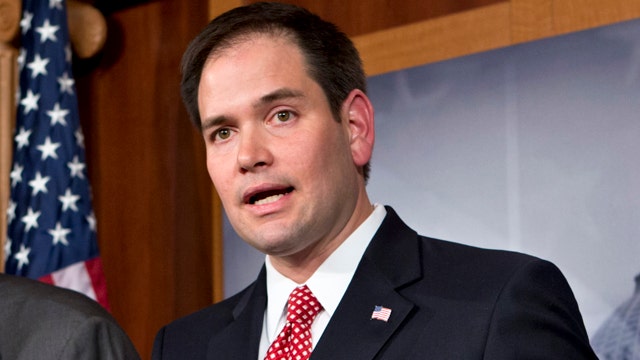 |
| GOP House leadership: marching to their own funeral? |
I've been following this story with keen interest, at least for a story that's been back-burner until now. And I've been wondering with the rest of you just what shenanigans the House Republicans will pull to salvage something out of the coming debt-ceiling limit vote. John Boehner, as do other Republicans, says that there must be a price paid for raising the limit. It hasn't worked the last two times they tried it, but that doesn't mean they won't try again, even in an election year. Sheesh.
Now the threats begin to take form and seem to be coalescing around demanding the repeal of "risk corridors" in the Affordable Care Act. What the hell are they, you say? Funny you should ask.
The provision -- called "risk corridors," but dubbed the "Obamacare bailout" by the law's opponents -- seeks to stabilize costs by creating a pot of money that takes in funds from insurers who enroll healthier customers and uses it to pay out insurers who enroll sicker customers. It's a safety valve that sunsets after 2016. The repeal push is clever messaging in a sense because it lets conservatives snatch the mantle of populism from liberals against wealthy insurance companies. But it comes with its share of dangers, too.What are these risk corridors? Ed Kilgore at Political Animal explains:
But the ransom note they are thinking about is pretty interesting: an end to the “risk corridors” provisions of the Affordable Care Act that enables temporary cross-subsidies of insurers who have an unusually poor mix of healthy and unhealthy Obamacare enrollees.
As you probably know, Republicans have been denouncing these subsidies as an “insurance company bailout,” even though most of the money is likely to come from assessments of companies with better risk pools, and the whole thing is intended to stabilize markets temporarily. That’s understandable as a short-term political tactic and as a way to make the “repeal Obamacare” agenda both more indirect and more populist-sounding.
But as the centerpiece of an authentic debt limit fight? That’s hard to imagine. A sustained focus on the “risk corridor” issue will make it plain that the effect of ending the “bailout” will be to raise health insurance premiums—the very malady Republicans have been screaming about as the most important short-term problem with Obamacare. [...]Right, House GOPers, threaten to not raise the debt ceiling unless you get to repeal a part of Obamacare that prevents health insurance premiums from rising. That's a winning strategy if I ever saw one. Aside from the fact that the Senate would never even take up such a bill and that the White House will chuckle and do cartwheels while you attempt this in an election year that was starting to go your way, there's that fact that you'll look limp and clueless when you cave in the end. High fives all around!
Steve Benen at the Rachel Maddow Blog gives the reasons why calling the risk-corridors provision an "Obamacare insurance-company bailout" is disingenuous, false, moronic, etc.:
Let’s be very clear: there’s no such thing as an “Obamacare bailout.” There’s no such thing as an “Obamacare bailout.” There’s no such thing as an “Obamacare bailout.” There’s no such thing as an “Obamacare bailout.” This is a talking point with all of the intellectual consistency of the “death panel” garbage.Follow the links to hear the truth, something the GOP is counting on you not doing.
 |
| Sen. Marco Rubio has introduced a bill in the Senate to repeal the risk-corridors provisions. He must be readying a presidential run! |

No comments:
Post a Comment